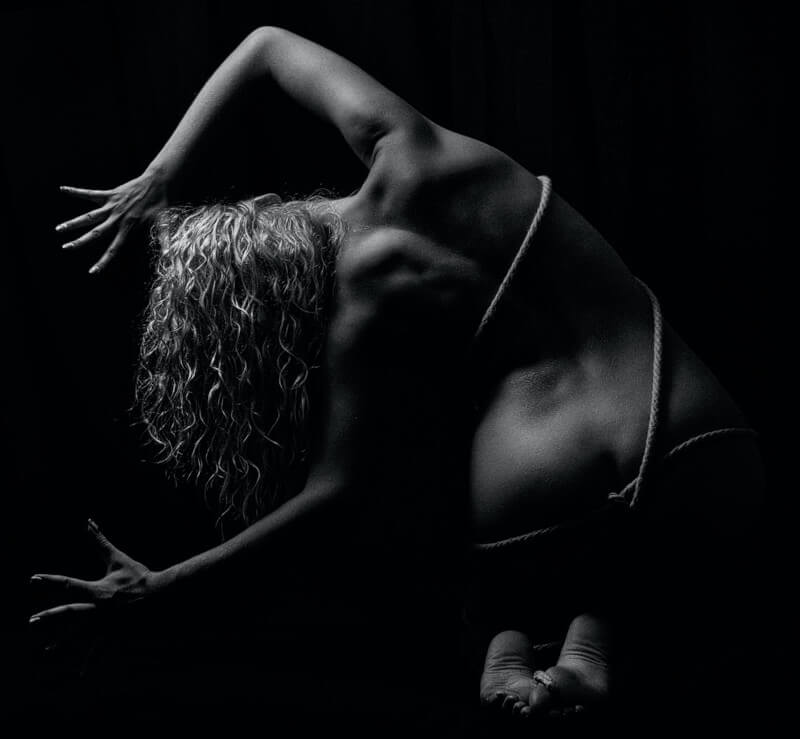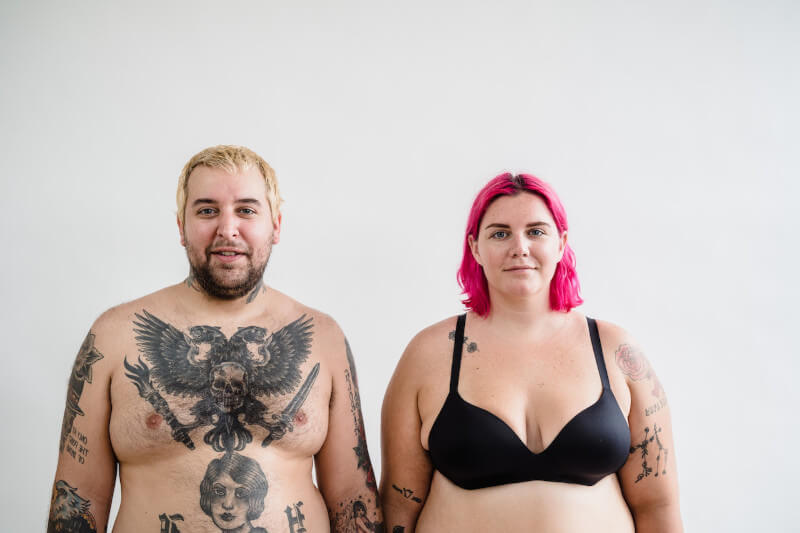This modern era is rife with body shaming. Body shaming is a problem that affects both males and women. This type of abuse can affect people of any body size. A person can be subjected to body shaming for something as minor as a scar or stretch line. It’s unfortunate, but a person’s handicap, height or even skin colour can all play a role.
This occurs both online and off. It’s highly poisonous and has the potential to wreck people’s minds. One type of bullying is called “body-shaming,” in which a person is humiliated because of their physical appearance. Body shaming typically occurs when an individual’s appearance does not conform to the norms of slender beauty. To hear such cruel words spoken about oneself can be heartbreaking and humiliating. Depression and eating problems are two outcomes that may occur.
Body humiliation can be brought on by internal critics as well as external ones. It’s unfair to evaluate people by how they look. What then, do you advise I do? When confronted with bodily shame, how do you respond?
Body-Shaming: How to Spot It
To overcome, recognize, avoid, and deal with body shaming, it is important to first recognise if it is occurring to you. Statements like “You’ve gained too much weight” or “You’re so skinny, and you need to eat more” are obvious examples of body shaming that can be deeply hurtful. However, you should be aware that there are nuanced forms of body shaming that are disguised as sarcasm. These are deceptive, but they may cause you to feel uneasy. Here are a few illustrations:
Insinuations like “You’re too tall for a girl” or “Should you be eating that cake?” If you appear like that, you can forget about finding a boyfriend. It doesn’t look good on you in that attire,” You’ve heard it all before: “Honey, you need to eat some more” and “You need to join the gym soon.”
Dealing with Body Shaming

No one deserves to be evaluated or made to feel ashamed due to their physical appearance, regardless of the term used to describe the practise. You should learn to appreciate and respect the physique you were given. The opinions of others will never cease to exist, and it is impossible to win over everyone. You can’t do what everyone else does, be your person, and appreciate yourself at the same time. You are deserving of learning how to boost your self-esteem. Here are some helpful suggestions for countering the effects of bodily shame:
Respect the Value of a Healthy Self-Image
Being body positive is the first step in combating the harmful effects of body shaming. Adopting a body-positive outlook entails realising and appreciating the psychological benefits of taking pride in one’s physical looks. You should be proud of your body and epidermis no matter what it looks like. Count your blessings that you’re healthy. Rather than dwelling on what you don’t have, focus on what you do. If you lack self-assurance, no amount of therapy will assist. Let go of concerns about how others will perceive your appearance.
Accept and Love Your Imperfect Physique
Try to embrace yourself and your body as it is, rather than expecting perfection. Don’t let the opinions of others sway you into changing your look. Do it because you care about your well-being or your self-esteem. Adopting a body-positive outlook is a necessary step toward ending self-criticism.
Come Out From Under Your Mask
Tragically, victims of body bullying often feel the need to isolate themselves. This can take the shape of avoiding social interaction, covering up, or a general desire to blend into the background. It need not go this way. There isn’t enough time to waste hiding from the world. Worrying about what other people think of your looks prevents you from living in the moment and having fun.
Don’t Get Cocky
To begin accepting and loving your physique. Quit your skulking! There’s no point in letting others’ perceptions of your physique shape your expectations for yourself. To get over your fear of social situations, try taking baby moves and paying attention to how you feel while you’re in them. You’ll learn to face your fears and emerge out of hiding.
Be Accountable and Take Ownership

Yes, no matter what, you must love and respect your body. But you should also be prepared to consider the chance that something is wrong with your physical health. The key is to strike an equilibrium. Comments made by some people may be well-intentioned but come across as cruel when read by others. You should also consider whether the people who make comments about your physical appearance truly care about you and want the best for you. People you can count on, like parents and close pals.
Putting on weight is an extremely touchy subject, for instance. Calling someone overweight is an insult and a form of bullying. But suppose this is a legitimate worry. Because it is common knowledge that being overweight raises one’s chances of getting health problems like diabetes and heart disease. This is why it’s important to think about accepting blame and guilt. In the end, what matters is how you feel, not how you appear. If you decide to take action, do it for the sake of your well-being. Because when you appear good, you feel good.
Show Yourself Some Love Having compassion for yourself
The last person you want to have to contend with when it comes to bullying is yourself. Therefore, it is crucial to treat oneself kindly. You must be kind, loving, and respectful to yourself at all times. Learn to accept and appreciate yourself as you are.
Get nude in front of a mirror and start appreciating what you see. Be kind to yourself; the worst thing that can drag you down is the bully inside your head. Stop expecting excellence from yourself and instead focus on self-care and remembering your strengths. Focus on doing good instead of trying to achieve perfection.
Manage Your Social Media Accounts
The potential of social media is vast. It’s a great resource for information and social connection, but it can also facilitate or facilitate abuse. If you find the constant barrage of body-shaming remarks on social media to be stressful, you can take action by either avoiding or unfollowing the people who are the source of that negativity.
You have complete authority over your social media account because it is yours. Instead, give yourself body positivity. Like the social media sites of people who share body-acceptance messages. Following health and fitness-related sites can help you stay motivated and on track with your physical fitness goals. But if you want to be upbeat, it’s best to stick to social media sites that preach self-love.
Appreciate Your Physical Form
Finally, being thankful for your body is an effective strategy for combating body shame. Don’t waste time pining for what you don’t have; be grateful for what you do. Appreciate your healthy body and all it does for you each day. Appreciate the present moment and everything it brings. Hope for perfect health instead of a perfect physique.
Keep in mind that even famous people aren’t perfect; they’re either too excellent to admit it or too secretive to let anyone see it. Don’t trust everything you see on social media; photos may have been filtered or edited to make them look better than they are. Remember to count your blessings and be grateful for the opportunity to survive.
How to Respond to Someone Who Is Shaming Their Body

Respond with compassion instead of anger when someone makes negative comments about your appearance. You could, for instance, state, “I appreciate your care. Right now, I’m working on cultivating self-love and a healthy body image. Please refrain from making similar comments in the future. Avoid making the situation worse by continuing to fight; instead, leave the room.
The wisest course of action is to politely call out the offender. Avoid starting a dispute or fighting back by body-shaming them, too.
Speak Up and Be at Ease With Your Words
Instead of responding negatively to someone rude to you, try to encourage positive support. You’ll feel better about yourself and more in control of the situation if you call the individual out on it.
The Effects of Body Shaming on a Person
The effects of body shame are far-reaching and devastating. It could cause:
- Lack of confidence
- Disorders of eating
- Anxiety
- Depression
- Issues with Body Image
- Disturbance of body image
What is It About Body Shame That Needs to End?
You may be also guilty of body-shaming others, even if you don’t mean to. Be careful with your wording and attentive to the feelings of those around you. We should all work together to end body shaming, which can leave victims with lasting psychological damage and a diminished sense of self-worth. Explore the benefits of online psychological counselling in South Africa.

